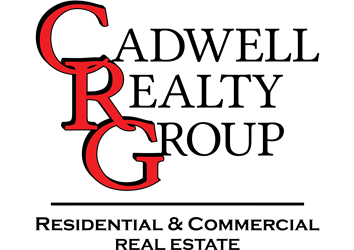
Patty Brown - REALTOR®, ABR®
LIFE'S A VOYAGE THAT'S HOMEWARD BOUND - Herman Melville

Buying Information
My buyers come from near and far. Some move across town, some from other parts of Oregon, while others are relocating here from out of state. Sometimes the need is for a larger home, or the need to downsize. And quite a few have been very excited to fulfill their dreams of returning to the place they once called home. Whatever your current need is, I am here to help.
Let's begin the home buying process so that you can understand how easy and hassle-free the experience will be for you.
#1 Getting Ready To Buy
Are you ready to build the "American Dream?" Preparing to buy a home can be both exciting and terrifying at the same time. You first may want to ask yourself these questions:
*What am I looking for in a home?
*Do I have enough money to purchase a home?
*How does my credit look?
You may want to make a list or brainstorm about the features and amenities that you find most appealing in a home. Clarify what a “Need” is vs a “Want” in your list of amenities that are important to you in your new home.
#2 Starting The Loan Process
It is important as a buyer that you establish some kind of financing before you make any serious home offer. The "pre-approval" process allows lenders to take a look at your finances and credit history in order to make a general assumption about your loan amount and financial strength.
In order to get pre-approved for a loan, you need to contact a lender. I have many wonderful lenders I can refer you to. I recommend speaking to a few so you find a lender that you are comfortable with and that offers programs best-suited to your needs.
#3 Property Search
Now it is time to start the exciting search for homes! You may want to narrow down your search by asking yourself the following questions:
*Where do I want to live?
*What is the neighborhood like?
*Which school district would my child be attending?
*Are there any zoning restrictions?
*How far is this home from my job?
*What is my price range?
*How many bedrooms and bathrooms do I want?
*What style of house am I attracted to?
*Does this home have potential to increase in value?
*Is there room to expand if I would like to build an addition?
Ideally we are able to tour homes in person as those walk-throughs will provide you the best boots on the ground experience of how the home ‘lives’. Does the floor plan flow well for you? Is the kitchen large enough? If you can not be here in person we have the option of FaceTime touring the property. In addition, many listings now offer video and 3D tours, which though not the same as touring in person, will provide you a better feel for the property’s layout and how it will function for your lifestyle.
#4 Making An Offer
In today’s hot Seller’s Market constructing a strong, appealing offer that is competitive in a potential multiple offer scenario requires a bit of thinking outside the box. Gone are the days of asking the seller to contribute to your closing costs. Budgeting for potential repairs adds to a buyer’s costs as many buyers, to sweeten their offer, state that they will not ask for repairs (but maintain the inspection contingency). Then there is the concept of Appraisal Gap Coverage if your offer is subject to a loan.
If you are a cash buyer, then appraisal gap coverage is not a concern. If you will be obtaining a mortgage for the purchase then there are other considerations when making an offer in excess of list price. As is often the case in this strong Seller’s market, there is the possibility that the home might not appraise for the price offered and accepted. What happens then? The lender will only lend on the appraised value. In a Buyer’s market (or in a balanced market) the buyer would typically show the appraisal report to the seller and request the agreed upon sales price be reduced to the appraised value. Or, both parties could negotiate sharing the difference… seller reduces the price some and the buyer would bring additional funds to the table to close the transaction. That is not the case in a Seller’s market.
The seller, having received multiple offers, probably has an offer or two in back-up position, all lined up to step in should the accepted offer falter. So the abiility to negotiate any prices concession if the appraised value falls short of the accepted offer price is slim. The seller wants the buyer to be responsible for any appraisal gap. Appraisal price gap coverage is extra cash the buyer offers the seller to minimize that disparity, guaranteeing they'll pay the sale price plus a specified amount not covered by the appraisal. Some buyers are able to do this, some can offer partial coverage, and some just do not have the extra cash to add this term to their offer.
Bottom line, a buyer has to put their best foot forward and write an offer that is realistic and financially comfortable for them. Just as each property is different, so is every offer. Terms vary based on individual scenarios of the propery, and buyer and seller wants and needs. We will discuss what offer terms and strategies work best for your personal situation.
#5 Insurance
Insuring your home is like making an investment in your future. Homeowner’s insurance protects you and your family and it will be a requirement of the lender.
There are many different forms of insurance:
*Title Insurance - Protects you in the event that the title on your property has a lien, unpaid taxes, or other legalities.
*Homeowner's Insurance - Protects your home from fire, theft and other liablities.
*Flood Insurance - Provides some coverage for flood damage to your home, and could be required by the lender.
*Home Warranty - Offers buyers and sellers the piece of mind should anything unexpected happen with items like electrical and plumbing repairs, furnance issues, etc… Sellers can obtain coverge during their listing period, which could come in handy with buyer’s repairs requests. And Murphy’s Law will be less painful to a buyer who moves in and the dishwasher springs a leak. Their home warranty should offer repair/replacement coverage. There are a variety of home warranty plans I can share with you if this product is of interest.
#6 Closing Procedures
The closing process is always changing. It is even referred to as "settlement" or "escrow" in different parts of the country. With increased technology, most closings are completely automated and both parties do not have to be present at the same time to sign.
Closings usually takes about 30 – 45 days to complete. This mainly depends on whether the buyer is a cash purchaser, or is utiilizing financing for the purchase. Other contributing factors that affect the ‘quickness’ of a closing are the successful home inspection completion, the property’s title report, and various lender conditions.
The closing process is the transfer of the title of the property from the seller to the buyer. We refer to the process as “CLOSING” but it really is a 2 part process… SIGNING & RECORDING:
1. SIGNING – Both the Buyer and the Seller sign their closing documents at the title company, or if out of the area a Courtesy Signing or Mobile Notary can be arranged. (In Orgeon the Buyers and Sellera have 2 separate appointments. We do not sit across the table from each other.) Signing documents for the Buyer using a mortagage usually occurs a day or two before recording so the paperwork can be sent back to the Lender for final review. If a cash purchase, we can often times SIGN & RECORD on the same day.
2. RECORDING – Once all the appropriate documents are signed, reviewed and approved by all parties the escrow company will record them with the local county record office. Now the transaction is legally closed and recorded. The buyer will receive the keys to the home or the deed to the land, while the seller receives payment for the property from the title/escrow company.
I am looking forward to providing you the keys to your new home!